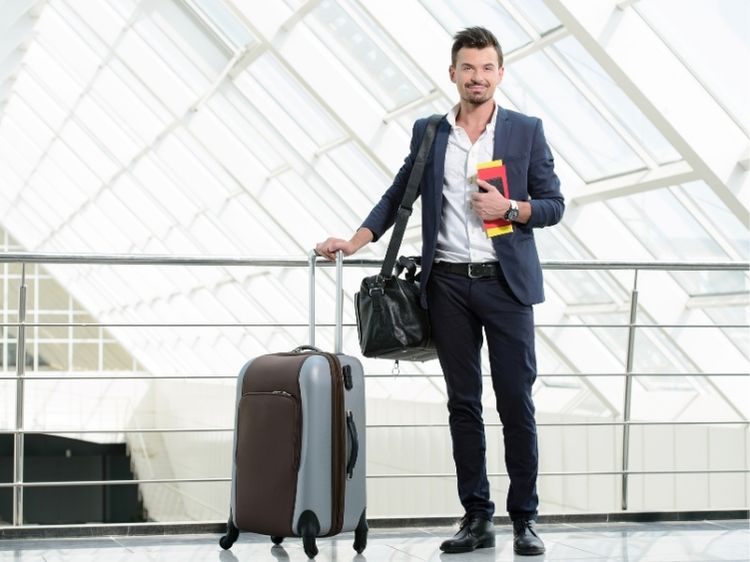Traveling alone allows women to create a trip that suits their interests and schedules. With no need to coordinate with others, solo travelers can enjoy a flexible itinerary, exploring new places at their own pace. This independence also fosters personal growth as women learn to rely on themselves and handle various challenges that arise during their travels. Meeting locals and other travelers often enriches experiences and deeper cultural understanding. Additionally, solo travel can help build self-confidence and resilience as women navigate new environments and solve problems independently.
Safety advice for women traveling solo
Research your destination thoroughly to understand its culture, local customs, and potential safety concerns. Familiarize yourself with the safest neighborhoods, transportation options, and local emergency contacts. Checking in with family and friends is crucial. Share your itinerary and update your loved ones regularly about your whereabouts. Consider using travel apps to check in with others and alert them in an emergency. Keep copies of important documents like your passport and insurance in a separate, secure location.
Dress in a way that respects local customs to avoid drawing unwanted attention. Trust your instincts always and steer clear of situations that feel uncomfortable. Use reputable transportation options, and avoid walking alone at night in unknown territory. Keep your belongings secure, and be overly cautious when sharing personal information with strangers.
Must-have items for women traveling alone
Packing the proper items can enhance your experience and ensure your safety when traveling solo. A portable phone charger is crucial for powering your devices so you remain connected. Personal safety devices, such as a whistle or a personal alarm, add an extra layer of security.
For those who enjoy outdoor activities, a soft cooler bag keeps snacks and drinks fresh.
Also, consider carrying a lightweight, multi-purpose travel scarf; it can serve as a cover-up, blanket, or pillow during your journey. Compact toiletries and a basic first aid kit are essential to handle minor health needs. Also, packing a versatile, layered wardrobe helps you adapt to different climates and situations without overloading your luggage. Lastly, a good quality, lockable backpack can help keep your belongings secure while moving.
Managing finances for solo trips
Set a budget for accommodations, meals, activities, and unexpected expenses. To stretch your budget further, utilize travel apps to discover deals and discounts on flights, lodgings, and attractions. It’s also a good idea to carry various forms of payment, including credit cards and some local currency, to be sure that you are prepared for every possible situation. Keep an eye on your spending by tracking expenses daily. This helps you refrain from overspending and allows you to make adjustments if needed.
Consider booking accommodations with kitchen facilities to prepare some meals, saving you significant money. Riding public transportation instead of taxis or ride-sharing services can help you stay within your budget. Being financially prepared guarantees that you can focus more on enjoying your trip without the stress of financial worries.
Connecting with others while traveling solo
Joining group tours or classes can be a great way to meet fellow travelers with similar interests. Staying in hostels or social accommodations allows for plenty of opportunities to engage with others and participate in group activities. Connecting with locals can offer a deeper understanding of the culture and traditions of the place you’re visiting. Language exchange meetups or local events are great ways to connect with residents. Volunteering can also be an enriching experience, allowing you to meet people while contributing to the community. Social media and travel forums can help you connect with other solo travelers before and during your trip, providing a sense of community and support.
Focusing on health and well-being
Maintaining your health and well-being is crucial while traveling alone. Ensure you stay hydrated by carrying a reuseable water bottle and drinking plenty of water throughout the day. Eating a balanced diet is equally important; seek local markets for fresh fruits and vegetables to incorporate into your meals. Regular exercise can help you stay energized, so consider integrating physical activities into your itinerary, such as hiking, biking, or joining a fitness class. Additionally, getting enough rest is essential. Prioritize quality sleep by creating a comfortable hotel, hostel, or rental environment.
Looking after your mental health is just as important as physical well-being. Practice mindfulness or meditation to manage stress and stay present during your travels. Engage in activities that bring you joy and relaxation, such as reading, writing, or visiting a museum. Don’t hesitate to take breaks when needed; it’s okay to slow down and recharge. Keep a small kit with basic health supplies like hand sanitizer, face masks, and any medications needed to ensure you’re prepared for minor health issues. By focusing on your physical and mental health, you can enjoy a more fulfilling and stress-free solo travel experience.
Solo travel is an enlightening experience that allows for incredible personal growth and self-discovery. Take advantage of the freedom to explore new places, meet diverse people, and step out of your comfort zone. Document everything throught videos, pictures, and this travel journal. Ultimately, solo travel is about seeing new places and learning more about yourself.
